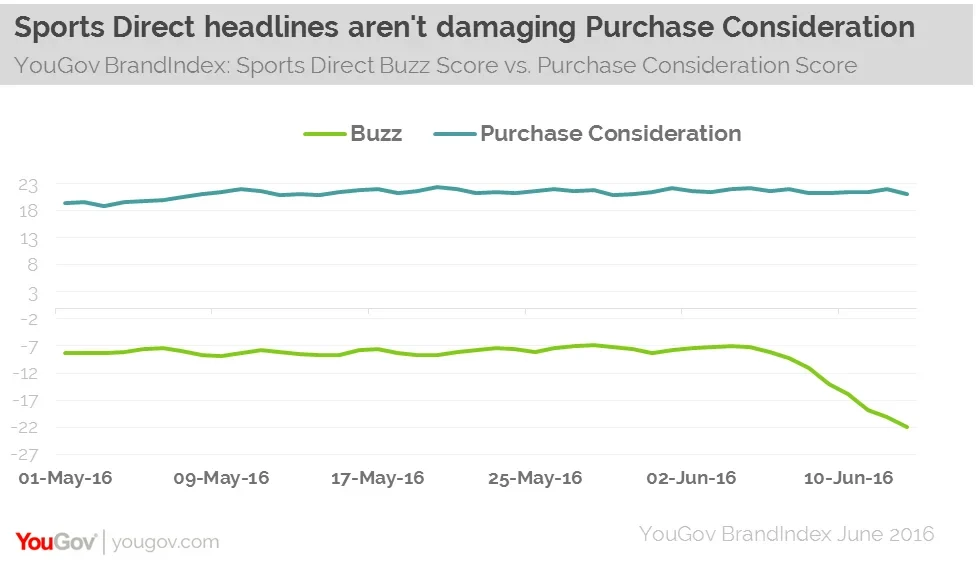Sports Direct owner, Mike Ashley, made his long-awaited appearance in front of a parliamentary select committee last week.
During his questioning by MPs the retail boss made a series of admissions, including failing to pay staff the minimum wage due to the time it took workers to leave the premises as a result of compulsory searches.
Serious concerns about the health of workers were raised, as was the controversial question of zero and 336-hour contracts. The Unite union had labelled the working conditions experienced by some workers as ‘Dickensian’.
Despite the nature of the questions, investors were placated and reassured by Ashley’s performance, and Sports Direct’s share price rose markedly following his appearance.
YouGov BrandIndex data indicates how the hearing and surrounding media attention has impacted on the company’s overall brand health.
Sports Direct’s Buzz score, which measures whether a respondent has heard something negative or positive about a brand in the past two weeks, sank to its lowest point since we started tracking the company in 2013. Only BHS has had a worse score over the past month.

It’s Impression Score (whether people have a positive or negative impression of a brand) has seen a similar decline over the past week, dropping to its lowest point since the turn of the year.
However, despite the negative headlines and the brand’s poor image, Sports Direct’s Purchase Consideration score (measuring whether people would consider buying a product from the brand) has remained steady and positive over the past week. This shows that despite the negative press, consumers have not been turned off shopping at the brand.
So while the public may find the practices distasteful and objectionable, for many the fact remains that the company provides products they want – and at cheap prices. What’s more, at the moment, there is not really a direct competitor for those customers to consider.
Image PA










